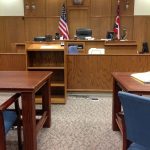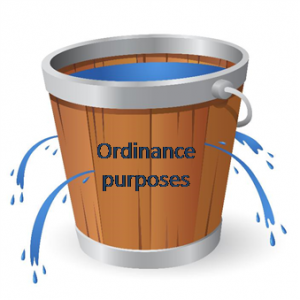Zoning Board Basics
Many communities use zoning to help them protect the aspects of life that they cherish – from strong communities to safe drinking water and high quality lakes and streams. The intent of zoning is to balance individual property rights with the rights of the general public to a healthy, safe and orderly community. Zoning by Kevin Struck provides a detailed view about the zoning process.

Every community that has adopted a zoning ordinance must appoint a zoning board of adjustment or appeals. The zoning board of adjustment or appeals functions like a court, and must follow state laws and local zoning ordinances. The zoning board cannot change or ignore any part of the zoning ordinance or state laws, but must apply the laws as written.
Zoning boards do not get to change local zoning laws. If a person wants to change the zoning laws they should run for office to be on their county, city, village or town board, which are the bodies that decide on the content of the local zoning laws.
Generally, city, village and town zoning boards are called “zoning boards of appeal”. Counties, and the roughly 200 or so towns throughout the state that operate under town zoning, without village powers, are called “zoning boards of adjustment”. They function very similarly.
Role of the Zoning Board

The primary role of a zoning board is to review and decide cases where a relaxation of the ordinance is sought or where there is an alleged error in a zoning decision.
If the purposes of a zoning ordinance are held in a bucket, and variances (leaks) are granted that compromise ordinance purposes, then over time the purposes of the ordinance are lost.
Zoning boards may be authorized to participate in three types of decision-making:
- Variance. A relaxation of a dimensional or use standard specified in the zoning ordinance.
- Administrative appeal. A legally contested order or decision of the zoning official (usually associated with a contested map or text interpretation).
- Special exception/ conditional use. A use or dimensional exception listed in the zoning ordinance that is not permitted by right but may be granted if certain conditions are met. Zoning boards do not have this authority unless authorized by local ordinance.
The zoning board may only grant a variance, special exception or administrative appeal if the applicant provides evidence showing that they meet all of the legal standards for that decision. Zoning board decisions are based on the evidence at the hearing and whether the zoning board finds that the applicant has met all legal standards.
While it is tempting to think of zoning boards as providing flexibility in administration of zoning, flexibility is strictly limited by state and local laws that determine the authority of zoning boards and provide criteria for decision-making.
Composition of the Zoning Board
The composition and legal requirements regarding membership, appointment and terms of zoning board members differ among counties, towns, cities and villages as specified in state statute.
Watch: Role of the Zoning Board
This video describes the types of decisions zoning boards make, the approach they use, and why their decisions matter.
Resources
Introduction, Zoning Board Handbook, Chapter 1.
Introduction to the Zoning Board, Zoning Board Handbook, Chapter 2.
Formation and Organization of the Zoning Board, Zoning Board Handbook, Chapter 3.
Zoning by Kevin Struck provides a detailed view about the zoning process.
Apply Your Learning
What are the three types of decisions that zoning boards can be authorized to make? Which of these decisions does your zoning board make?
- Conditional uses
- Variances
- Administrative appeals




